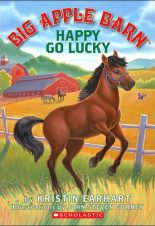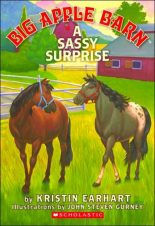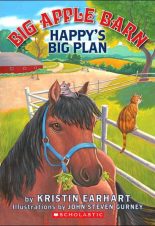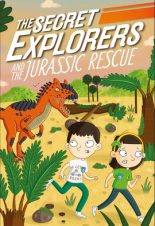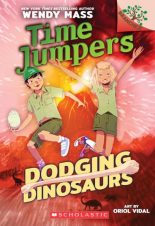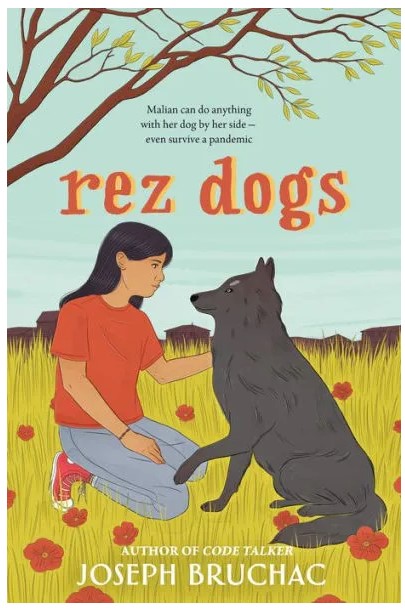
Buy This Book
“And now, through the stories her grandparents were sharing, she was getting to travel in another way, feeling her spirit travel through time, being part of something so much older, so much deeper,” Malian. –Rez Dogs
Rez Dogs
by Joseph Bruchac
AR Test
8+
Score
5.1
192
Malian loves spending time with her grandparents at their home on a Wabanaki reservation—she’s there for a visit when, suddenly, all travel shuts down. There’s a new virus making people sick, and Malian will have to stay with her grandparents for the duration.
Everyone is worried about the pandemic, but Malian knows how to keep her family safe: She protects her grandparents, and they protect her. She doesn’t go out to play with friends, she helps her grandparents use video chat, and she listens to and learns from their stories. And when Malsum, one of the dogs living on the rez, shows up at their door, Malian’s family knows that he’ll protect them too.
Rez Dogs gives an overview of the pandemic through the eyes of a child on a reservation. Both her grandparents and her new dog, Malsum, help her understand indigenous history and her ancestor’s Wabanaki/Penacook stories. Malian also encounters other facets of modern indigenous life, like the issues with Wifi reception on the reservation. In addition, her grandparents receive an unannounced visit from a social services employee who doesn’t have a valid reason to question the family. These pieces help highlight the rampant inequality that still exists today. In the same breath, Malian brings up other examples of community and indigenous life. For example, during the pandemic, Ireland raised money to send to the Navajo and Hopi people in their time of need.
The story is written in verse, which gives this quiet story a nice, even pacing. Although not high in action and adventure, there is a lot of good historical information in the book. For instance, Malian’s grandparents help Malian with a school assignment about the US government’s treatment of indigenous peoples. One story includes information about how the US government used to sterilize indigenous women. Although the nature of this conversation is difficult, Bruchac explains it in kid-friendly language, without including graphic details. Historical events come up often, and it provides a great starting point for readers who may not have any prior knowledge of indigenous history.
Rez Dogs demonstrates the importance of culture, family, and storytelling. Malian’s grandparents tell Malian many stories about the Wabanaki/Penacook people; many of the stories have been passed down through generations. Malian’s experiences make her feel more connected to her grandparents and her heritage.
The dog, Malsum, is a symbol for indigenous folks generally, as he embodies community and protects Malian. Her grandpa says, “Some of the most loyal folks I’ve ever known have been dogs. They always find some way to come back home.” In the end, Malsum disappears when Malian leaves the reservation. Malian and her grandparents conclude that they’re all rez dogs, coming and going, but always returning home when they need to.
Rez Dogs is a straightforward story that highlights the importance of storytelling as part of one’s culture. Bruchac uses both past and present stories to present information about indigenous people’s culture. The stories are delivered in a simple, yet powerful manner. While young readers will be unfamiliar with Malian and her family’s experiences, the overarching themes will resonate with all readers and may spark readers’ curiosity so they will want to learn more about indigenous histories and cultures. Other books that feature indigenous characters include The Sea in Winter by Christine Day and The Girl Who Loved Wild Horses by Paul Goble.
Sexual Content
- None
Violence
- There are discussions about the violence that occurred in native boarding schools in North America. For example, Grandpa Roy talks about how one of the nuns at his school left him a “gift.” He says, “Every knuckle on/ both my hands/ got broken one time/ or another/ from being hit/ with that heavy ruler/ Sister Anna Louise/ always kept in her pocket.”
- Malian’s grandma explains how on reservations, doctors hired by the US government used to sterilize indigenous women. Grandma says, “Whenever a woman/ went into a free clinic,/ they’d offer to do/ a full health check-up./ And when she woke,/ they would not tell her/ what they’d done—/ an operation/ to prevent her from/ ever having more kids.” This is a historically accurate statement that leads Malian to research the Eugenics Project, which details many of the same atrocities in similar terms.
- Malian has to do a genealogy project, and she considers sharing about how “the colonial government/ offered bounties for Indian scalps.” No more detail is given.
Drugs and Alcohol
- None
Language
- Grandpa Roy expresses that they’re “god darn lucky” that the coronavirus hasn’t reached their home and that Malian and her grandparents haven’t encountered it yet.
- Malian explains that her reservation friends call her Macintosh, like the apple, because it’s “a name for someone/ who looks Indian/ but acts more/ like a white person—/ red on the outside/ and white within./ An insult to say/ to somebody Native.” Malian says she doesn’t mind that they say it because they don’t say it in a mean way.
- Grandpa Roy laughs about the various misinformed beliefs white people have about indigenous people, including the Wabanakis. He notes that one belief about Wabanakis is that they are “anal-retentive, whatever that means.” This is not explained further.
Supernatural
- None
Spiritual Content
- The characters in this book are members of one of the Wabanaki nations who reside in modern-day Maine as well as in Canada. As such, there are discussions about stories and beliefs in the Wabanaki nations. For instance, Grandpa Roy tells Malian a story about how his Grandpa Red Hawk once saw the dogs acting like people. Red Hawk says, “They’d put on clothes/ we left behind/ and some of them/ were walking around/ on their hind legs./ Some were sitting/ around the fire/ and drinking soup/ from wooden cups…/ one of them was even/ smoking a pipe.” These stories pop up often throughout the book.
- Malian mentions that she had a “Catholic school uniform,” presumably because she went to Catholic school.
- Malian and her grandma break off the fry bread and put it under a tree for “Manogies,/ the little people/ who are the guardians/ of the natural world.”
- As a child, Malian’s mother was in foster care. She describes foster care to Malian, saying it “was like purgatory,/ someplace with no address/ and stuck/ in between/ heaven and hell.”
- Malian notes that her grandparent’s old dog died and “her spirit took the Sky Road.”
“And now, through the stories her grandparents were sharing, she was getting to travel in another way, feeling her spirit travel through time, being part of something so much older, so much deeper,” Malian. –Rez Dogs
Latest Reviews
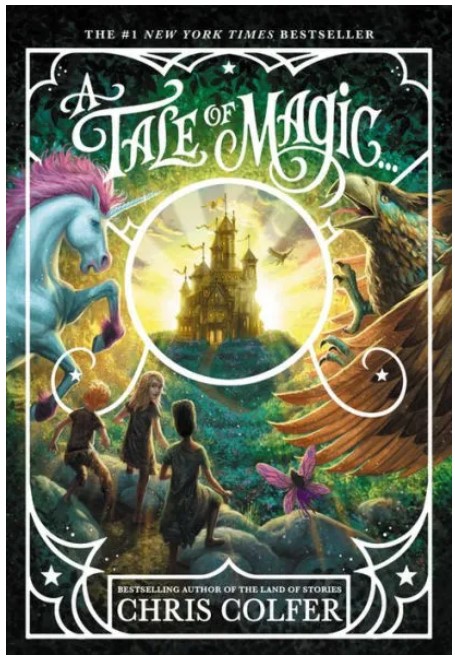
A Tale of Magic

The Immortal Fire

Grace Hopper: Queen of Computer Code

Girls Who Code: Learn to Code and Change the World

Alone

Friends Fur-Ever

Harry Houdini: A Magical Life

The Greedy Gremlin

Hoop Genius: How a Desperate Teacher and a Rowdy Gym Class Invented Basketball

